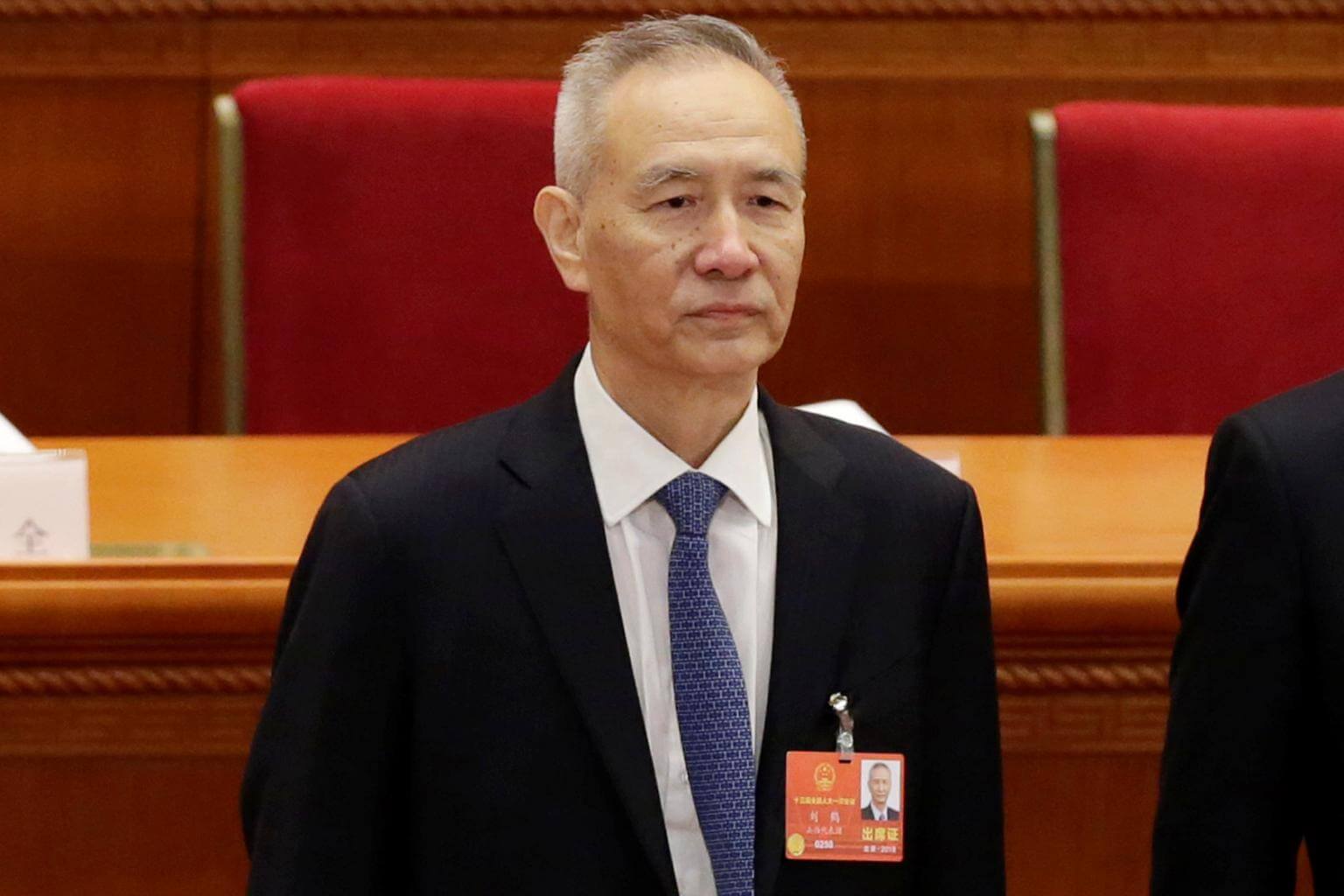NPC 2018: China elects key economic team, President Xi's confidante Liu He named a vice-premier
Sign up now: Get insights on Asia's fast-moving developments

Mr Liu He arrives for the opening session of the National People's Congress (NPC) at the Great Hall of the People, on March 5, 2018.
PHOTO: REUTERS
Chong Koh Ping
Follow topic:
BEIJING - President Xi Jinping's top economic adviser Liu He was made, as widely expected, one of four China's four vice-premiers, showing Beijing's determination to deepen reforms to stem financial risks.
The Harvard-educated Mr Liu, 66, is known to be the architect of China's financial and economic reforms, driving supply-side policies such as cutting overcapacity in steel and coal, and excess housing stock.
Analysts say his elevation on Monday (March 19) to vice-premier overseeing the economy and finance sector will ensure a steady rollout and implementation of the reform plans.
China has said fighting financial risks, such as reducing debt, preventing housing bubbles and stamping out shadow banking, will be one of its top priorities in the next three years.
.
"He is extremely familiar with the problems that the economy faces such as the need to upgrade industries at the macro level as well as the need to improve the efficiency and output of individual firms at the micro level," Prof Zhao added.
Mr Liu was elected into the 25-member Politburo, the second highest rung of China's political power structure at the 19th national congress of the Chinese Communist Party (CCP) last October.
Since 2013, he had headed the General Office of the Central Leading Group for Financial and Economic Affairs, and been a vice-minister of the National Development and Reform Commission, China's top economic planner.
Another signal of policy continuity was the promotion of long-serving deputy central banker Yi Gang as head of the People's Bank of China (PBOC).
Mr Yi, 60, is a United States-trained economist who has been with the PBOC for 21 years. Given that he spent the past 10 years as a close deputy to his predecessor Zhou Xiaochuan, analysts expect him to continue to push for reforms, including opening China's capital markets and liberalising the exchange rate regime.
"As a technocrat, Yi Gang commands considerable expertise, providing a steady hand at the top of China's central bank that now has extended powers over macro-prudential policies as well," said HSBC co-head of Asian economics research Frederic Neumann.
China merged the banking and insurance regulatory bodies in the recent sweeping government reorganisation, transferring more powers to the central bank in efforts to curb financial irregularities such as regulatory arbitrage.
But some analysts noted that Mr Yi may not command the same clout as Mr Zhou.
"Frankly speaking, (Mr Yi's promotion was) a bit unexpected as he holds a relatively low political ranking as alternative member of CCP Central Committee," said OCBC economist Tommy Xie, referring to the nearly 400-member top decision-making group made up of 204 full members and about 170 alternate members.
"In terms of implication, we see policy continuation as Yi will support Liu He to drive economic reform. Both are the main drivers of China's reform in the past few years," said Mr Xie.
Mr Yi told reporters on Monday following his election that his main task is to "implement prudent monetary policy, push forward the reform and opening-up of the financial sector, and maintain the stability of the entire financial sector".
"We will announce a series of reform and opening-up policies and initiatives in the future, including at the the Boao Forum for Asia in Hainan," Mr Yi added.
On Monday, Mr Liu Kun, a former vice-finance minister, was elected to replace Finance Minister Xiao Jie while Commerce Minister Zhong Shan and NDRC head He Lifeng were both re-elected.

